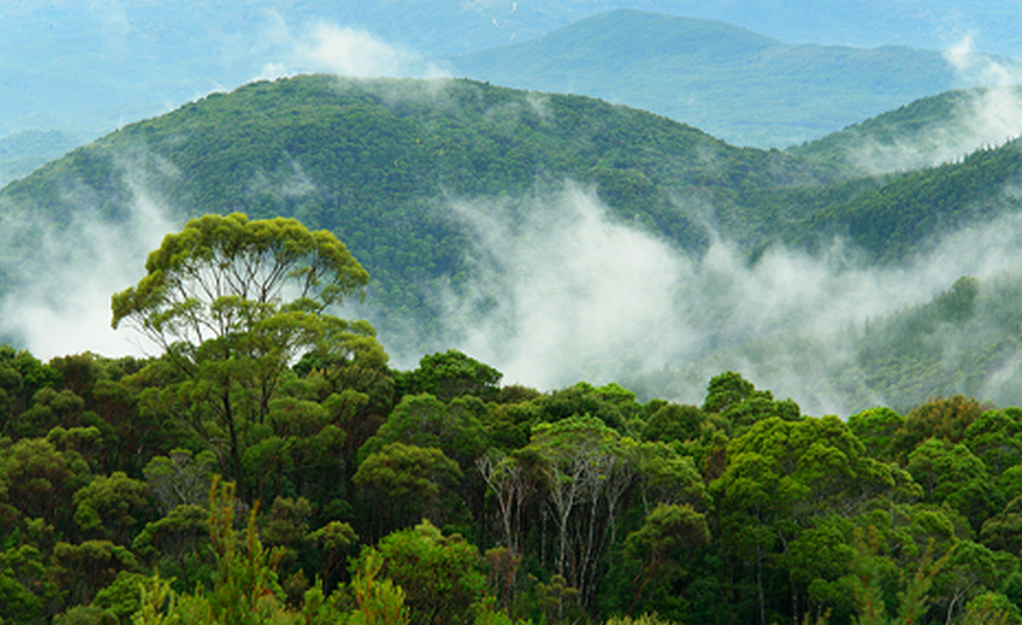Climate change is increasingly putting strain on ecosystems and societies. International policy frameworks such as the UN Framework Convention for Climate Change, the Paris Agreement and the EU’s European Green Deal have been put in place to prevent the worst effects.
These agreements stress the importance of combining strong reductions in emissions with strategies that remove some of the carbon dioxide (CO2) already in the atmosphere. Forests play a large role in this, as they naturally absorb atmospheric CO2 and store it in their biomass.
One proposed strategy is to reduce forest management – such as logging – in order to increase the amount of carbon that can be stored in forests. A new study by the JRC and ETH Zurich university evaluated how much carbon could be stored in forests under the hypothetical scenario of completely removing forest management. This scenario provides an insight into how much such a strategy could, at best, contribute to climate change mitigation.
The results show that reducing forest management would mitigate climate change only to a limited extent. The hypothetical scenario of removing all forest management, and thus stopping any interference with forests, would only compensate for 4 years of CO2 emissions (at the 2019 CO2 emissions rate from fossil fuel).
Another forest-based climate-change-mitigation strategy put forward is to increase the amount of land covered with forests, by reforesting previously forested areas or afforesting areas that have not (recently) been covered with trees. This strategy is complicated by the strong competition for land presented by agriculture and urban expansion, particularly given the projected population increase in the coming decades.
If this competition for land were somehow to be overcome, storing enough carbon in trees to mitigate climate change in a meaningful way would require massive amounts of land. The study suggests that, to compensate for one single year of global CO2 emissions, an area larger than Germany, France and Spain together would need to be reforested/afforested and allowed to fully grow.
Together, storing carbon in existing forests by forgoing management practices and planting new forests has the potential of sequestering CO2 from the atmosphere, and compensating for carbon emissions. The scale of these processes is, however, insufficient to fully compensate for the current rates of CO2 emissions.
The forest carbon sink should instead be used to compensate for the emissions of those sectors which we cannot decarbonise completely, such as agriculture. Forests do not provide a silver bullet to fight climate change. Reaching carbon neutrality will be a difficult journey, and one in which all other emissions will have to be drastically reduced.
Tags: Climate Change, CO2, Forests, UNFCCC



Recent Posts
Hygenco Commissions Maharashtra’s First Green Hydrogen and Oxygen Facility to Power STL’s Net Zero Goals
India Invites Second Round of R&D Proposals Under ₹4 Billion Green Hydrogen Mission
BMTC Adds 148 Tata Electric Buses to Bengaluru Fleet, Strengthens Green Mobility Drive
MITSUI E&S Deploys Hydrogen Fuel-Cell RTG Crane at Yokohama’s Minami Honmoku Terminal
WinGD’s first ammonia-fuelled engine installed on EXMAR vessels
DP World and Asian Terminals Inc deploy first fleet of electric internal transfer vehicles in the Philippines
Lloyd’s Register Decarbonisation Hub Joins Mærsk Mc-Kinney Møller Center as Knowledge Partner
Wärtsilä engines selected to deliver reliable power for US data center